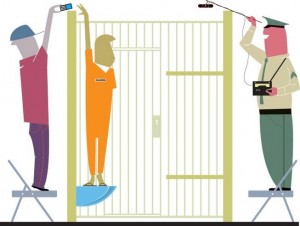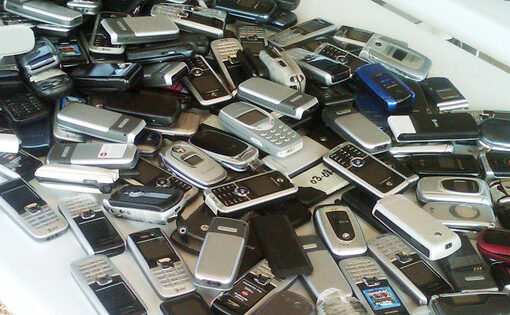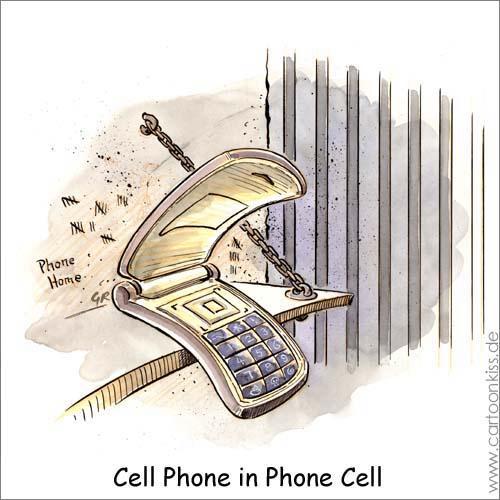 A story about the improper use of contraband cell phones in Texas prisons. A death row inmate paid $2100 for the phone. Fourteen death row inmates were found with contraband prison cell phones.
A story about the improper use of contraband cell phones in Texas prisons. A death row inmate paid $2100 for the phone. Fourteen death row inmates were found with contraband prison cell phones.
Texas State Senator John Whitmire calls it the most unusual phone call of his life. “Nothing shocks me anymore, but this would probably take first prize for the biggest, unbelievable story,” said the Senator from Houston. “No Texan should have to worry about getting a call from an inmate.”
In fact, Whitmire received several calls in October, 2008.
“He said ‘I’m here on death row. I’m an inmate,’” recalls Whitmire, who then asked the inmate how he got hold of a phone. “He said ‘I bought it for $2100.’”
The Democratic Senator says the calls came from death row inmate Richard Tabler. Before long, Tabler was revealing personal information about Whitmire’s daughters. “He was making references to my family as he was asking me for assistance. Law enforcement said that was to put me on notice.”
Whitmire alerted the authorities and Tabler’s cell phone was confiscated. But it didn’t end there. Death row inmate Licho Escamillia says the entire unit was searched. “They had a special team come down and conducted searches in our cells,” Escamillia said from his prison unit in Livingston.
Texas prison officials found cell phones on 14 death row inmates, including Escamillia. “They found it in the side of the wall. They found some chips on the wall and they broke it down and they pull the phone out.”
The man convicted of killing Dallas police officer Christopher James claims he had no idea the phone was hidden in his cell wall.
In 2010 791 cell phones were taken away from Texas prisoners. So far in 2011, about 260 have been confiscated.
“One is too many,” said Michelle Lyons from the Texas Department of Criminal Justice. “It’s a felony to possess a cell phone within a prison and obviously a lot of damage can be done with a cell phone.”
Inmates can use cell phones to run drugs, organize thefts and order hits on the outside world. Many phones are smuggled in inside cakes, shoes and body cavities.
Senator Whitmire says the Texas Department of Criminal Justice needs to wake up.
“I’m always upset with the prison system, because I don’t think they go to zero tolerance and they don’t have the energy behind this issue until we have an incident.”
Whitmire points to inmate David Puckett, who recently used a cell phone to escape from a prison near Beaumont. The senator says it finally lit a fire under prison officials. But his frustration doesn’t end there. He says in 2007 the Texas Legislature gave $17 million to the Department of Criminal Justice to improve security.
The TDCJ says it has spent $7.6 million of that money for the purchase of surveillance cameras, scanning equipment, metal detectors and internal body scanners. Whitmire wants to know why the rest hasn’t been spent. “I do not think it’s a high enough priority,” said the senator.
The one course of action both Whitmire and prison officials can agree on is the jamming of cell phones in Texas prisons.
“Ultimately, we would love to have the ability to use jamming technology,” said Lyons. “If you can’t use the phones inside the facility, then certainly it’s going to cut down on inmates even trying to get a phone in.”
However, FCC law prevents cell phone jamming anywhere. Senator Whitmire says the law needs to be updated.
“Let me tell you what I would do if I was running this place by myself,” Whitmire said with a sense for frustration. “I would jam them anyway and I would just see what the federal government did.”
But for now, that’s not an option. However, Texas prison officials are looking at other technology that would help them pinpoint where a phone signal is originating from within a prison.
- Blockchain System for Compliant Inmate Transactions - March 4, 2025
- Securus Gets the Signal, Eleven Years Later - August 23, 2024
- Multi-Blockchain System for Inmate Forensics - April 2, 2024




